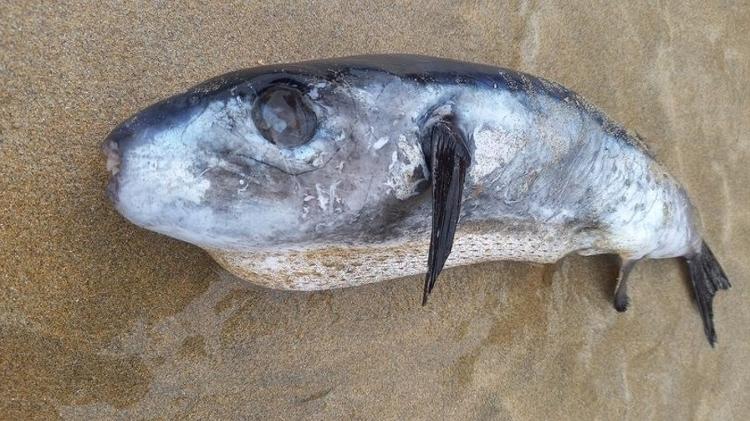A rare and extremely deadly fish has been found off the coast of Cornwall in the south of England. The creature has a toxin 1200 times more toxic than cyanide.
According to local newspaper Cornwall Live, the discovery was made by marine animal expert Constance Morris during her vacation trip to Newquay.
He was walking with his family on the beach of Towan when he saw several seagulls circling around a big fish. Constance decided to investigate what this was, as it routinely registers dead sea animals for the Cornwall Wildlife Trust’s Marine Stranding Network, a wildlife watchdog in the area.
After his examination, the expert confirmed that it was an ocean puffer fish (lagocephaly lagocephaly???????? According to Constance, the fish of this species are highly poisonous.
“As I walked over to the fish, I knew it was an unusual find – a chip on its back, drooping white underside, chunky face that hides its most prominent feature: the beak. None of our local fish have a beak, so I knew it was something a little more tropical,” he explained.
They are native to the Pacific, Atlantic, and Indian oceans. Despite their rarity, there has been an increase in the presence of these pufferfish in the Mediterranean in recent years. Still, the researcher noted that the appearance of this fish on the territory of England is quite unusual.
Studies show that each ocean puffer fish carries enough toxins to kill about 30 adult humans. Another factor that increases the creature’s danger is the absence of an antidote to the harmful substance.
Constance decided to take the fish home and study it for academic purposes and share the information with marine life research institutions. She explained in detail all the precautions she took before she came into contact with the animal’s body.
“I’m always ready for such situations. In any case, I recommend not touching the body. I carry a special tool with me so that I can bag the fish and put it safely in my backpack.” “It is very important to record these as they provide a better indication of what is going on in our oceans.
Matt Slater, marine conservation officer of the Cornwall Wildlife Trust, warned beachgoers of ocean puffer fish if other fish of this species are found on the beaches. “They can produce toxic slime, so it’s best to handle them with gloves. Like all puffer fish, they produce tetrodotoxin, which is especially dangerous if ingested.”
source: Noticias
Mark Jones is a world traveler and journalist for News Rebeat. With a curious mind and a love of adventure, Mark brings a unique perspective to the latest global events and provides in-depth and thought-provoking coverage of the world at large.
